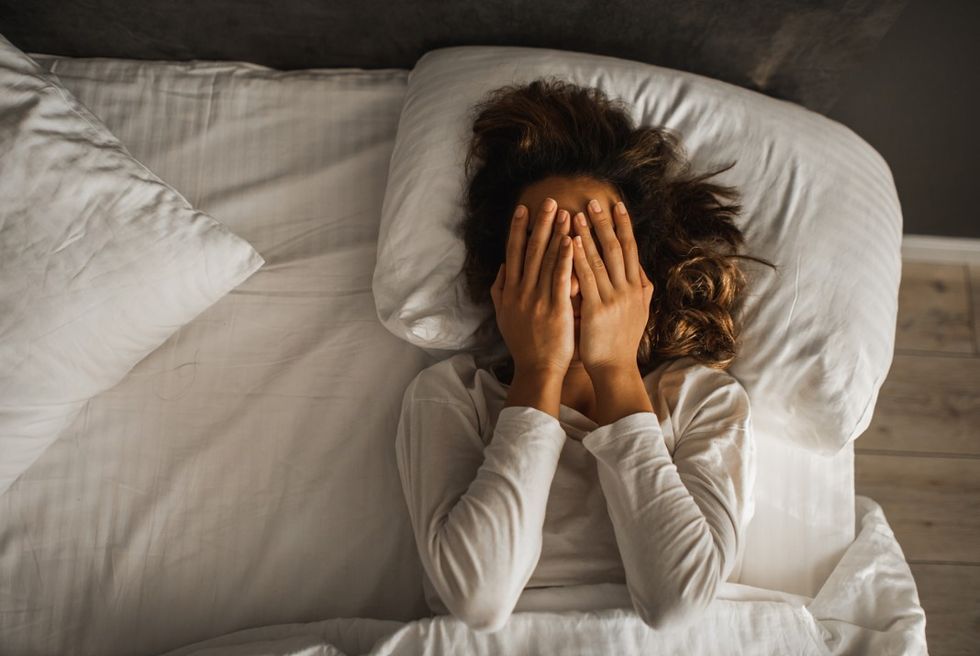Darker nights can cause disruptive health issues
PEXELS/GETTY
Darker days could be dangerous for Briton's health
Don't Miss
Most Read
Trending on GB News
Winter is fast approaching and with this comes darker evenings and colder days.
Such changes can wreak havoc on sleep patterns and make Seasonal Affective Disorder (SAD) more likely.
Speaking exclusively to GB News, experts have shared a warning to Britons on the possible health impacts of the lack of daylight and some ways to stay in top health.
Occupational therapist and ambassador for Opera Beds Elaine Hollerhead said: "Darker mornings, that are often cold and wet, give little incentive for individuals to get up at their usual time and darker evenings tempt them to retire to bed earlier.

The darker days can affect sleep
PEXELS
"However, this change in routine will affect the normal sleep pattern. Instead of providing the anticipated extra hours of sleep it is more likely to induce extra hours of sleeplessness, and the opportunity to focus on negative thoughts. Anxiety will exacerbate the symptoms and frustration and irritability will cause disruption to a person’s lifestyle."
The expert explained disrupted sleep can lead to a number of health problems, but creating a good environment at home will make a restful night easier to achieve.
Elaine continued: "To achieve restorative sleep a comfortable supportive bed is essential. So many of my clients, especially those with minor or major health conditions, complain of pain, difficulty sleeping and overall fatigue.
"I am always amazed to discover they are sleeping in beds that have sagging bases, mattresses that are lumpy and have no postural support, and an assortment of pillows haphazardly arranged in an unsuccessful attempt to provide a degree of comfort.
"I always explain that maintaining good posture, both awake and asleep, is essential to maintain joint health, prevent joint deformities, reduce pain, and enhance mobility and function.
"Continuing to sleep in decrepit beds and on unsupportive mattresses will simply compound pain discomfort joint stiffness and disturbed sleep. Therefore, the number one priority is to replace the current bed with a new one."
Britons were found to be the worst sleepers in Europe.
As well as disrupted sleep, symptoms of SAD are more likely to appear on darker days.
Elaine said: "SAD is a medically-recognised syndrome that affects a person’s mental health. It’s diagnosed by a GP and key symptoms are changes in sleep pattern, lethargy, sleepiness during the day, fatigue, difficulty in coping with daily activities and even depression.
“It can be treated with a short course of antidepressants, but this method is not for everyone. Other treatments include cognitive behavioural therapy and light therapy. For those living with this condition ‘self-help’ is necessary."
How to minimise the impacts of SAD
Maximise exposure to natural light
Maintain a constant sleep schedule
Make time for activities
Exercise regularly
Create a relaxing bedtime routine
Control your sleep environment
Consider light therapy
Decluttering and decor
LATEST DEVELOPMENTS

SAD is more likely in winter
GETTY
Britons should prepare for the potential impacts of the clocks going back later this month.
Clocks go back an hour in the UK on Sunday, October 29 at 2am.
Britons have been urged to prioritise their health as they could be putting themselves at risk.








